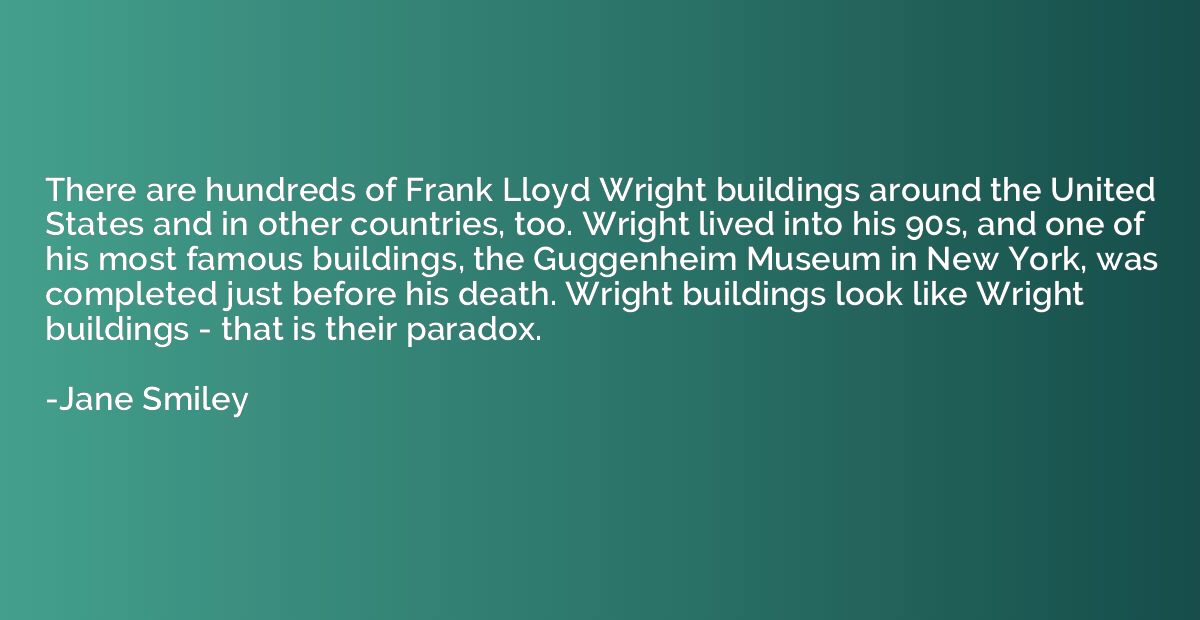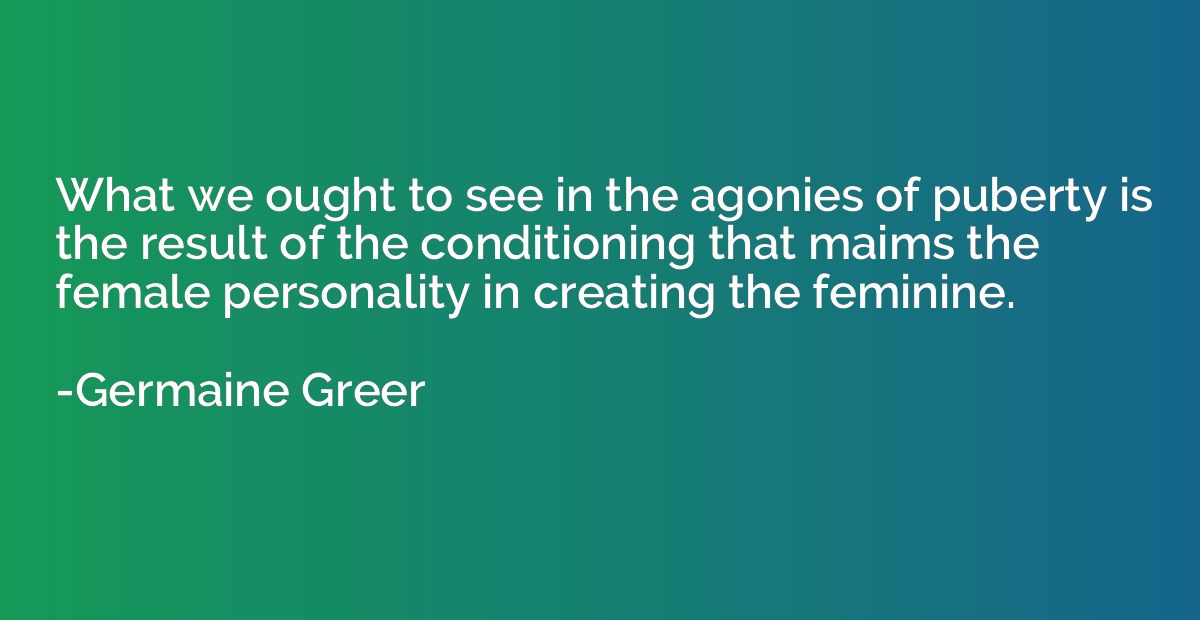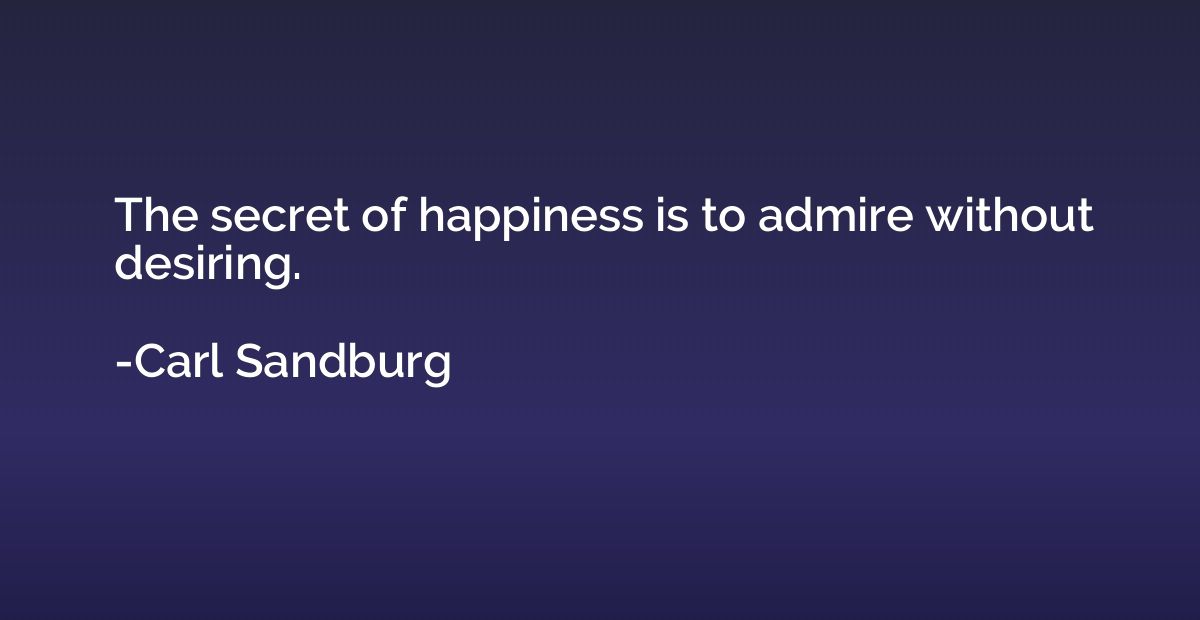Quote by Jane Smiley
There are hundreds of Frank Lloyd Wright buildings around the United States and in other countries, too. Wright lived into his 90s, and one of his most famous buildings, the Guggenheim Museum in New York, was completed just before his death. Wright buildings look like Wright buildings - that is their paradox.

Summary
This quote suggests that Frank Lloyd Wright's buildings are easily recognizable and distinct, embodying a unique style that sets them apart. Despite his prolific career and numerous creations worldwide, the quote emphasizes that Wright's architectural designs maintain a consistent visual identity. The paradox lies in the fact that while his buildings are easily identifiable as "Wright buildings," they also possess a propensity to be distinctive and unparalleled in their individuality. This highlights the artist's ability to create structures that are both recognizable as his own yet still innovative and one-of-a-kind.
Topics
Death
By Jane Smiley














